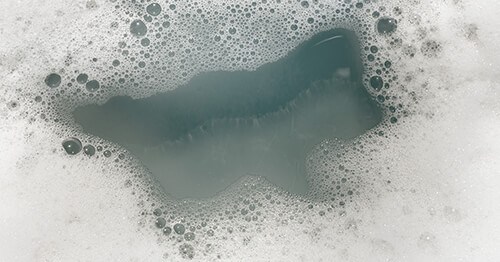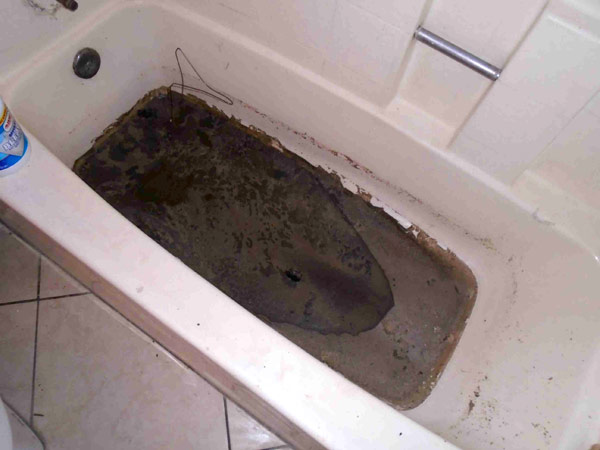Just how do you really feel when it comes to Why is Sewage Backing Up Into My Bathtub??

Sewage back-up in the tub can be a stressful and unsanitary trouble for any type of house owner. Not only is it troublesome, but it likewise positions severe wellness threats and suggests underlying concerns with the plumbing system. Understanding why sewer is showing up with the tub is important for taking proper activity to address the issue successfully.
Intro to the Concern
Recognizing the Trouble
When sewage starts backing up into the bathtub, it's a clear sign of a trouble with the drain system. The wastewater that needs to be flowing away from your home is rather discovering its back right into your home, which can result in considerable damage and health hazards.
Prospective Reasons
A number of elements can add to sewer backup in the tub. From blockages in the sewer line to concerns with the plumbing framework, recognizing the source is crucial for discovering a service.
Usual Factors for Sewer Backup
Obstructions in the Sewage System Line
Among one of the most common sources of sewer backup is a clog in the drain line. This can happen as a result of the build-up of debris, grease, or foreign items in the pipes, protecting against correct flow and creating sewer to back up into your bath tub.
Tree Root Intrusion
Tree origins looking for wetness and nutrients can penetrate drain lines through tiny cracks or joints. Over time, these roots can expand and increase, triggering substantial damages to the pipelines and causing sewer back-up issues.
Aging Facilities
Older homes might have obsoleted plumbing systems that are much more prone to corrosion, splits, and degeneration. As pipes age, they end up being much more susceptible to leaks and blockages, enhancing the probability of sewage back-up cases.
Heavy Rainfall or Flooding
During durations of heavy rainfall or flooding, the sewer system might end up being overwhelmed with excess water, triggering backups and overflows. This can cause sewage supporting right into tubs and other fixtures inside the home.
Health Dangers Connected With Sewer Back-up
Contamination of Water System
Sewage back-up can infect the water system in your house, positioning a severe health threat to you and your household. Direct exposure to polluted water can cause intestinal problems, skin infections, and various other ailments.
Spread of Condition
Sewage has dangerous germs, viruses, and parasites that can create a range of diseases, consisting of hepatitis, cholera, and gastroenteritis. Coming into contact with sewer or infected surface areas places you in jeopardy of infection.
Mold Development
Dampness from sewer back-up can develop optimal problems for mold growth in your home. Mold and mildew spores can exacerbate breathing issues and trigger allergic reactions in delicate people, making punctual clean-up important.
Indications of Sewer Back-up
Foul Odors
Unpleasant odors rising from drains or components, particularly in the shower room, may show sewer backup problems. These odors are often strong and persistent, signaling an issue that needs instant focus.
Slow Draining Fixtures
Bathtubs, sinks, and commodes that drain slowly or otherwise at all could be experiencing sewage back-up. If multiple components are impacted at the same time, it's likely that the concern stems from a common factor, such as the major sewer line.
Gurgling Noises
Unusual gurgling or bubbling noises originating from drains when water is running in other places in your home are indicative of air caught in the plumbing system. This air accumulation can result from sewer back-up and must be explored quickly.
Immediate Actions to Take
Switching Off Water System
In case of sewer back-up, it's vital to switch off the water to prevent additional contamination and damages. Locate the major water shutoff valve in your house and closed it off until the concern can be resolved.
Speaking To an Expert Plumber
Dealing with sewer back-up is not a DIY job. Call an accredited plumber with experience in dealing with sewage-related issues to assess the circumstance and carry out necessary fixings or cleanings.
Avoiding Contact with Polluted Water
Till the sewer backup is dealt with, stay clear of contact with polluted water to avoid the spread of microorganisms and pathogens. Put on protective gear if you need to remain in the afflicted area and clean your hands completely later.
Preventive Measures
Normal Maintenance of Sewer Lines
Schedule normal evaluations and upkeep of your sewage system lines to determine and resolve prospective problems prior to they rise into significant problems. This can consist of cleaning particles, checking for tree origin invasion, and repairing any kind of damaged pipelines.
Setting Up Bayou Shutoffs
Take into consideration setting up bayou shutoffs in your plumbing system to prevent sewage from flowing back right into your home during durations of heavy rainfall or flooding. These shutoffs automatically close when water starts backing up, shielding your residential property from contamination.
Proper Disposal of Home Waste
Prevent flushing anything apart from bathroom tissue and human waste down the commode to prevent blockages and clogs in the drain line. Dispose of grease, oil, and various other household chemicals correctly to lessen the danger of plumbing problems.
Cleaning Up After Sewer Backup
Disinfection Procedures
Thoroughly decontaminate and sanitize impacted locations after sewer back-up to eliminate hazardous microorganisms and prevent mold growth. Usage proper cleaning products and protective gear to guarantee secure and efficient clean-up.
Reconstruction of Affected Locations
Fix any kind of damage to floor covering, wall surfaces, or components brought on by sewage back-up. Relying on the degree of the damage, you might need to change carpeting, drywall, or various other materials to recover your home to its pre-loss condition.
Why Is Water Backing Up in My Bathtub When I Flush My Toilet?
What to do about a sewer line clog
First, don’t bother with plunging. No amount of plunging will dislodge the clog in a sewer line. The clog is too far away. Plungers are for clogs in the toilet itself, not the sewer line. Plus, the most likely causes of a sewer clog are:
- Tree roots
- Flushed toys or feminine products
- Grease buildup
Those items don’t move easily. And in the case of tree roots, the roots need to be cut out of the pipe and the pipe will need to be repaired.
You’ll need a closet auger. A closet auger is a type of plumber’s snake with a protective cover to keep from scratching the delicate porcelain toilet. If the clog is further down, you may need to remove the toilet or use one of your cleanouts to get to the clog.
We also recommend doing a video inspection of the drain to ensure that the cause of the clog has been completely removed. Otherwise, you could have the same problem again in a few days or weeks.
https://mspplumbingheatingair.com/blog/why-is-water-backing-up-in-my-bathtub-when-i-flush-my-toilet

I have been very serious about and I am assuming you enjoyed the new blog posting. Are you aware of anybody else who is occupied with the topic? Do not hesitate to share it. Bless you for your time. Return soon.
Book A Free Estimate

